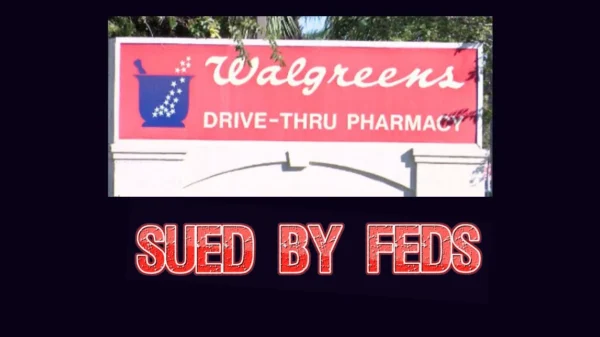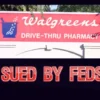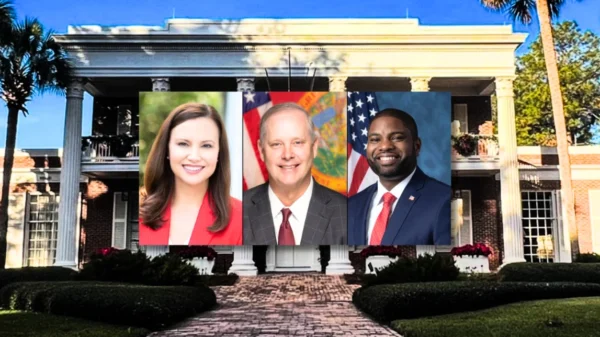The immediate victims of crime are not the only ones who suffer. Rising crime rates devastate entire communities, reversing progress that in many cases has been decades in the making.
While the nation’s attention is understandably gripped by the latest indictment of former President Donald Trump, cities all over the country remain mired in an epidemic of crime that has a far greater impact on most people’s daily lives.
In Chicago, robberies are up 38 percent over the past two years, burglaries are up 33 percent, and theft in general has increased 87 percent. Just recently, a convenience store was looted by a mob in Chicago’s South Loop neighborhood, resulting in 40 arrests. The perpetrators acted as though they had nothing to fear from law enforcement while reveling in the destruction and mayhem they caused.
Meanwhile, in New York City, both misdemeanor “petit larceny” (115,658 offenses) and felony “grand larceny” (51,565 offenses) are at 20-year highs, with significant spikes in the past few years.
This epidemic is being fueled by the proliferation of soft-on-crime policies that seemingly side with criminals over their victims. Notably, the spike in thefts in New York City coincided precisely with the tenure of Manhattan District Attorney Alvin Bragg, who issued a memo on his very first day in office directing prosecutors to avoid prosecuting what he deemed “minor offenses.”
Cook County State’s Attorney Kim Foxx, whose jurisdiction includes the City of Chicago, has also openly avoided prosecuting “low-level offenses” in the belief that prosecuting these crimes is somehow racist.
The truth is, though, that this misguided approach has done tremendous damage to black and brown communities, depriving them of both economic opportunity and basic safety. Reducing, or in some cases outright eliminating, consequences for aberrant behavior such as shoplifting, so-called “petty” theft, and other misdemeanors emboldens criminals and lowers the bar for what is considered normal or acceptable behavior.
Soft-on-crime prosecutors such as Alvin Bragg have even taken to downgrading many felony charges to misdemeanors – and when these prosecutors do actually take felony charges to court, abysmal conviction rates indicate that their hearts really aren’t in it.
The result has been an explosion in crimes such as shoplifting, which is increasingly being perpetrated by organized criminal groups that re-sell stolen merchandise. In 2021, the National Retail Federation estimated that losses due to shoplifting amounted to nearly $100 billion (about $310 per person in the U.S.) nationwide. That translates to higher prices at the checkout counter for consumers who have already been battered by two years of unusually high inflation.
It can be tempting to view crimes like shoplifting as “victimless” or “nonviolent” crimes, making it easier to justify non-prosecution. But any time a person deliberately violates someone else’s rights and knowingly violates the law, they chip away at the social contract that enables us to live together in relative harmony.
Consider the case of New York City CVS clerk Scotty Enoe. While stocking shelves one night, Enoe was attacked for no apparent reason by Charles Brito, a local homeless man who had been arrested more than a dozen times for shoplifting from CVS and other local stores. Enoe defended himself with the knife he used for opening boxes at the store, sadly resulting in Brito’s death.
With Alvin Bragg as prosecutor, Brito repeatedly walked free without bail after stealing from local merchants. Enoe, on the other hand, was sent to the notorious Rikers Island penitentiary. Only after one of his employers posted a $100,000 bond was Enoe allowed to leave prison, and now he must wear an ankle monitor and is only allowed to leave the house for work.
Whose side is Alvin Bragg on? He and other soft-on-crime prosecutors have made it an official policy to look the other way when career criminals victimize innocent citizens and shopkeepers, but when those victims try to defend themselves and their property, they are aggressively prosecuted and face the full fury of the criminal justice system.
This backwards approach to law enforcement has devastating consequences, especially for black and brown communities. Major retailers such as Walmart, Target, and Walgreens have all begun shutting down stores due to rampant shoplifting in cities whose prosecutors consider shoplifting a “minor” offense unworthy of their attention. Countless small businesses are similarly affected, and while their closures might not make headlines, they are just as damaging to the communities they served.
When stores close – be they chain stores or mom-and-pop operations – communities lose jobs. Residents also lose access to goods and services, including necessities like food and medicine.
Everybody in a community suffers from rising crime, not just the direct victims. If prosecutors really want to help black and brown Americans, they need to take crime seriously and go after the people who are victimizing those communities.
Pastor Marc Little is chair of the Center for Urban Renewal and Education (CURE) and founder of CURE America Action. A practicing attorney since 1994, Little appears on broadcast media as a nationally known advocate for faith-based business and economic development and civic engagement. This article was originally published by RealClearPolitics and made available via RealClearWire.





















